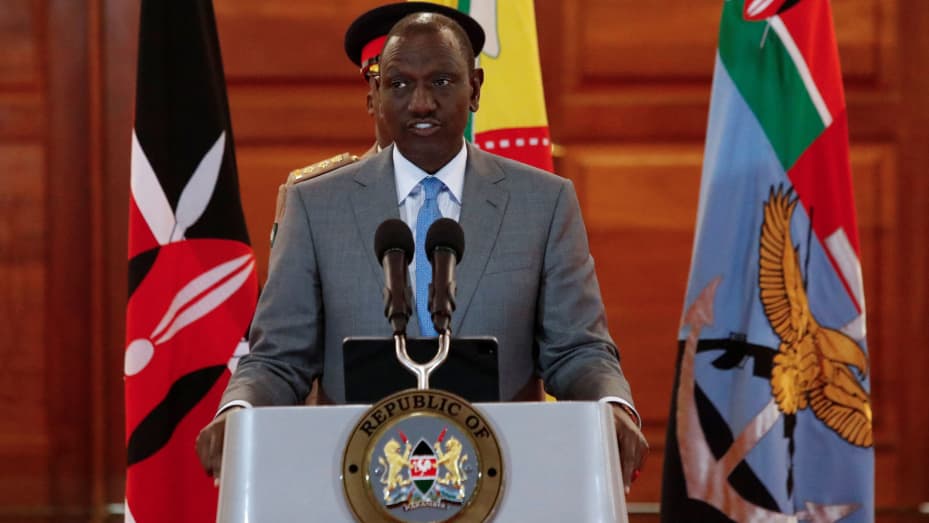Africa
Kenya in Crisis: President Backs Down on Tax Hikes After Violent Protests

Kenyan President William Ruto announced on Wednesday that he will not approve a finance bill proposing new taxes, following a violent protest at parliament where several individuals were fatally shot. This incident marked the most significant attack on Kenya’s government in decades.
While the government aimed to raise funds to address the country’s debt, many Kenyans argued that the bill would only exacerbate their economic hardships, as millions struggle to make ends meet. In response to the chaos witnessed on Tuesday, the government deployed the military, and President Ruto condemned the actions of the protesters as “treasonous.”
Now, the president acknowledges that the bill has caused “widespread dissatisfaction” and has expressed his willingness to listen and make concessions. This setback is significant for Ruto, who had promised to assist Kenyans in coping with the rising costs but is now facing opposition from a united front, primarily led by the youth, against his latest reform attempt.
Ruto emphasized the need for a national conversation on how to collectively manage the country’s affairs, stating, “It is necessary for us to have a conversation as a nation on how to do we manage the affairs of the country together.”
The aftermath of the protests left Kenyans grappling with the aftermath, with tear gas lingering in the air and military presence on the streets. The previous day’s protests witnessed thousands storming parliament in an act of defiance that Ruto deemed an “existential” threat. According to a human rights group, at least 22 people lost their lives, and the police were accused of being responsible for some of the shooting deaths.
Ruto acknowledged the unfortunate loss of lives and offered his condolences, stating that approximately 200 individuals had been injured. While Nairobi has experienced protests in the past, activists and others have warned that the current situation carries greater risks. Despite this, Ruto vowed to suppress the unrest “at whatever cost,” even as more protests were planned at State House for Thursday.
Herman Manyora, an analyst and professor at the University of Nairobi, highlighted that the president missed an opportunity during his national address on Tuesday night to adopt a more conciliatory approach. He noted, “We are dealing with a new phenomenon and a group of people that is not predictable. If it would have been the normal demonstrations, I’d say it will fizzle out with time, but we don’t know whether these people will fear the army.”
The Kenya Law Society successfully challenged the military deployment, leading to its suspension as ordered by the High Court. Despite the absence of violence on Wednesday, there is a prevailing sense of fear. Civil society groups have expressed concerns over abductions of individuals involved in recent protests and anticipate further incidents. In response, the High Court has instructed the police to release all those arrested during the protests. Deputy President Ruto has stated that those who were allegedly abducted have either been released or undergone legal proceedings.
Although the youth played a significant role in electing Ruto in 2022, enthused by his promises of economic relief, they now oppose the hardships brought about by the reforms. On Tuesday, a section of the parliament building was set ablaze, and clashes erupted in various communities outside the capital.
According to the Kenya National Human Rights Commission, at least 22 people have lost their lives in these events. Commission chairperson Roseline Odede reported that 300 others sustained injuries, and 50 individuals were taken into custody.
